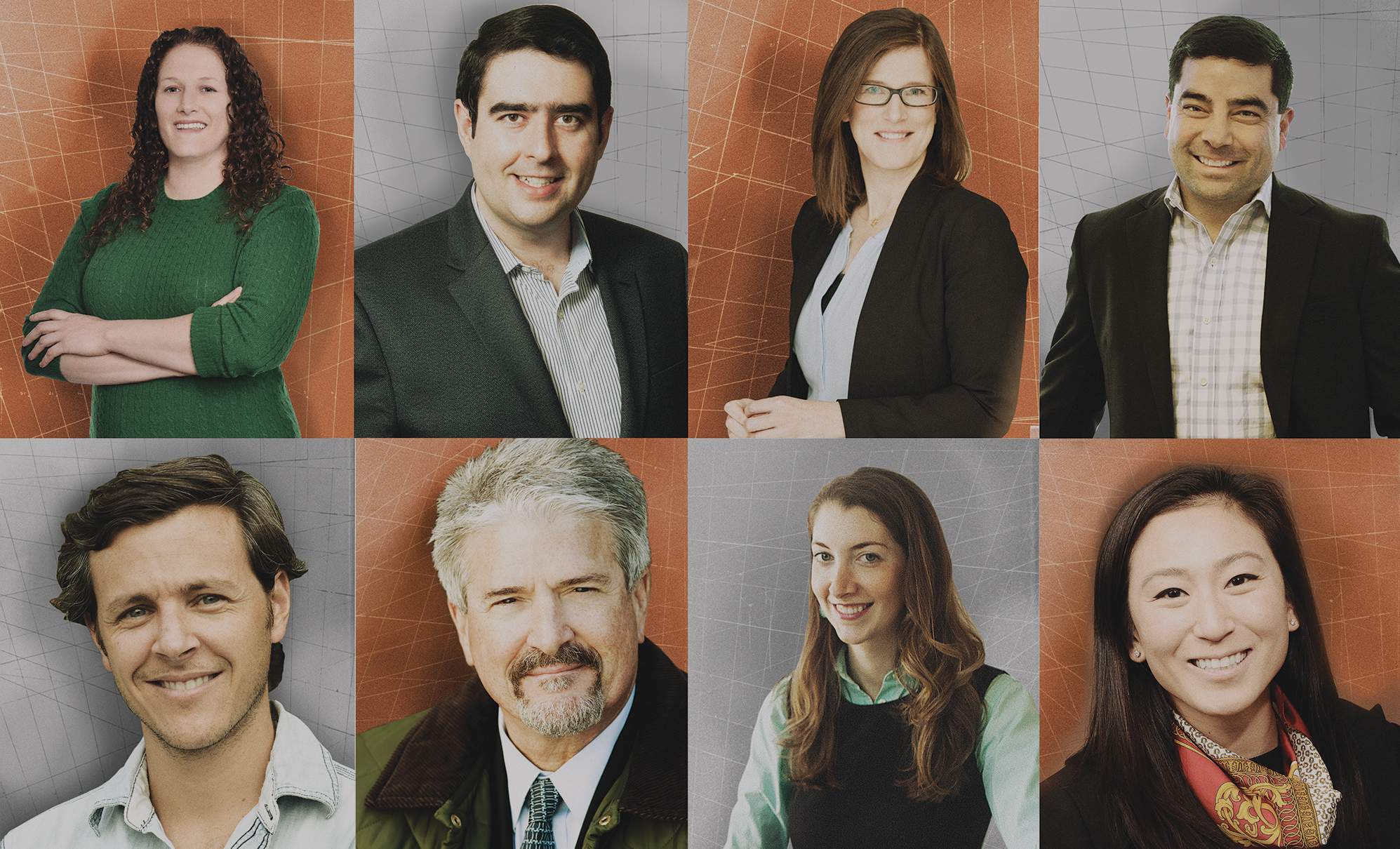
No Ordinary Network
Pay it forward. It’s the philosophy embedded within the heart of the Tuck alumni network—and it’s an adage that alumni do not take lightly.
By Kate Siber D'02
Jul 18, 2017

After Nick Luthwood T’01 received his acceptance letters from business schools, a daunting task lay before him: deciding where to go. From the United Kingdom, he didn’t know a whole lot about the American schools on his list, so he decided to visit. He ambled about the Tuck campus, went to a few classes, and eventually wandered into the dining hall. Feeling a bit intimidated, Luthwood sat down with his lunch. A nearby student immediately struck up a conversation with him.
“He explained that all the top programs will get you towards the job you want, but you have to ask yourself where you want to spend two years and what type of people you want to be around for the rest of your life,” he says. “It was excellent advice.” And it was advice Luthwood, who is now the founder and CEO of LiqiDT—an innovative global finance business in illiquid assets, infrastructure and capital raising in Guildford, England—took to heart.
At Tuck, he noticed a uniquely warm familiarity between students, faculty, and administrators. Students brought their dogs to class and had dinner with their lecturers. They left their wallets and computers on tables without hesitation and bonded over long nights, huddled in study groups. These were his people.
There’s an unspoken bond between Tuckies, and those relationships endure.”
“Maybe it’s being in a small town,” says Luthwood, “but you really appreciate each other. There’s an unspoken bond between Tuckies, and those relationships endure.”
Tuck’s legendary network now includes about 10,000 living alumni from 74 countries and was ranked #1 by The Economist in alumni network effectiveness. For the tenth year in a row, more than two-thirds of Tuck alumni have given back, one of the highest alumni giving rates among American business schools. But what speaks loudest to the real-life value of the network are alumni experiences themselves.
Before she even applied to business schools, Alice Lin T’14 had heard about Tuck from her boss, Sean Riley T’05, who waxed about activities in the Upper Valley and extolled the virtues of the Tuck alumni network, through which he found several jobs. Riley helped Lin with her application and wrote her a recommendation. Other alumni met up with Lin and exuded such enthusiasm—trekking through the rain to buy her drinks, the “highlight of their week”—that she made Tuck her first choice and applied early action.
“Going in the door, you’re super excited about Tuck,” says Lin. “When you’re there, you have this amazing experience. Then afterwards you’re still in touch with a lot of your community and feel really positively, and that’s why alumni engagement is so high.” After Tuck, she secured a job at Liberty Mutual and all seven of the other alumni at the company—today there are nearly 40—were happy to take the time out to speak with her.
The following alumni have also benefitted from the Tuck network in ways big and small. In their own words, they share stories of great advice, help received at a critical moment, and other ways their fellow alumni offer support that goes far beyond those two busy years spent in a small New Hampshire town.
Each year, Professor of Corporate Communications Paul Argenti leads a discussion with first-year students on managing their business school experience replete with competing priorities—academics, socializing, recruiting, and health.
It was against this backdrop that my classmate Maggie Misztal T’14 and I discussed how strenuous environments (we were both consultants in our pre-Tuck careers) inevitably relegate self-care to the very bottom of a long list of priorities, spawning a general malaise that all too often spirals into a vicious cycle of lethargy. Breaking that cycle is an existential imperative. Maggie, I remember, recounted how she started running because “you can run anywhere,” and it’s a convenient physical activity in a role that involves extensive travel. It’s also worth noting that Maggie is a triathlete and taught spin classes at Tuck.
Which is why I took it seriously when she told me to look after myself and heed my body’s admonishments. Not that I wouldn’t, but hearing it from another made it more potent.
At Tuck, I used that advice as a guiding principle to stop and think when I felt overwhelmed. Am I eating right? Have I exercised adequately this week? Have I spoken to my best friend from college lately? And it did help me focus—and sometimes re-focus—on the most overarching priority: my mental and physical health.
Now I know if I’ve let it slip. I know that when I’m really tired I stop paying attention to details. My memory suffers. I am less organized and somewhat uncertain about what I need to do and far less efficient. I now work in a company where the buck stops at me, so making mistakes is not an option. I still check in on myself, not obsessively or maniacally, but I make it a point to eat healthy, exercise, get enough rest—and watch bad TV!
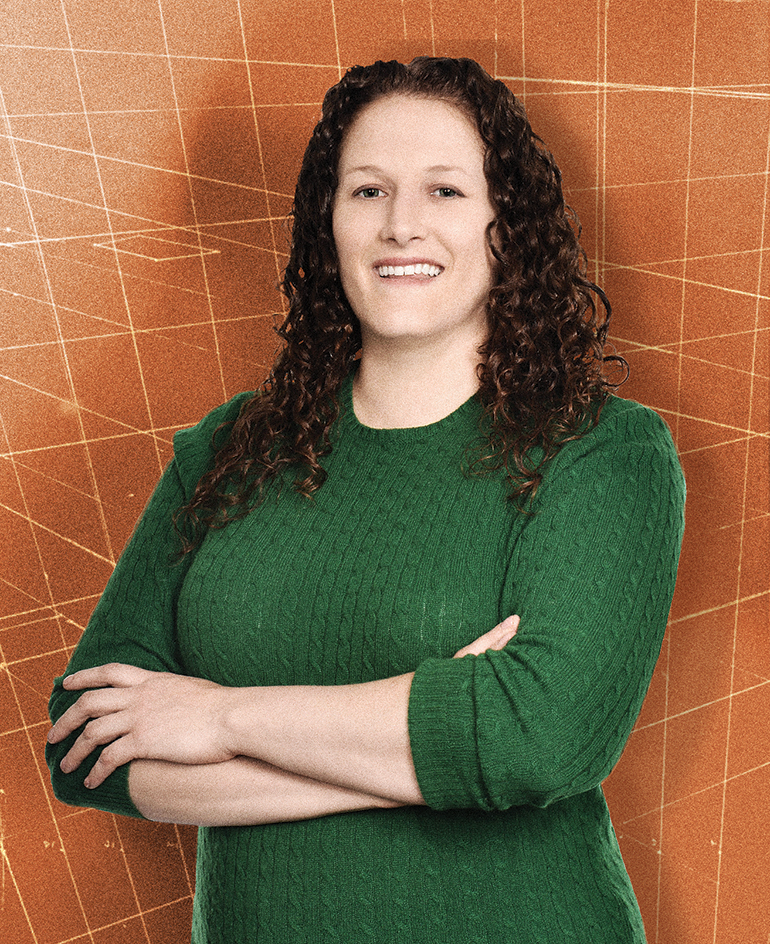
Alli Henry T'06
When I was applying to Tuck, Doug Asano T’04 interviewed me to be admitted. We still keep in touch. He's been really helpful teaching me about networking, for example. He always told me to end any networking interview with, “Thank you so much for your advice. Can you think of two colleagues who might also be helpful to meet with?”
This has always led to more doors opening, additional interviews, contacts, and friendly introductions to helpful connections. If you can get a warm intro from someone who says, “I recently chatted with this bright young person,” it’s so incredibly helpful to stand out from an enormous pile of applicants. It’s also helpful if you’re looking for referrals for services or professionals.
I also got great advice from Jim Butterworth T’91. He took me out to a breakfast when I was 27 and between jobs. I was very young, a little confused about next steps, and he was blunt: “I can open lots of doors for you, but you need to lay out what your ask is. If you ask, I can help. If you’re not sure, I don’t know exactly who I need to call in my network to get you where you need to go.” It made a huge impression. It was a good life lesson that people can open their rolodexes for you, but you need to know what you need first.
There’s sort of an adage that you can pick up the phone and call anyone in the Tuck network and they really will take your call—if not immediately, they will respond. It’s true. That’s crazy and it’s real and it’s awesome.
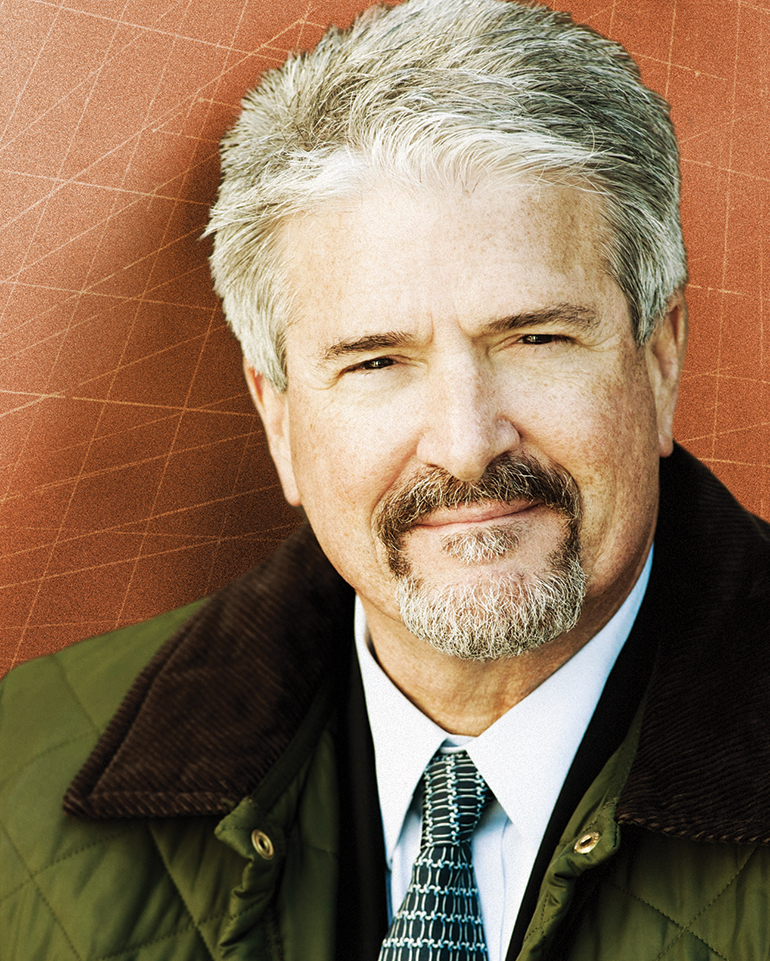
Kent Covington T'86
In 1980, I began my first job out of college at Bankers Trust. Shortly thereafter, I met Jack Rubin T’80, a recent Tuck graduate working in the corporate finance area. He became a friend and mentor.
One day a head hunter approached Jack and offered him a new opportunity. He was frustrated by some developments in his current role, so he interviewed and got the offer. He was shown his new desk in their office on Park Avenue then went back to resign. But after hearing him out, his department head said, “Well Jack, what would it take for you to stay?” Jack told him it would take a $10,000 raise and a $5,000 bonus. The department head responded, “I can’t guarantee anything, but will you give me 24 hours to see what I can do?” Jack answered, “Of course, just don’t come back with 9 and 4.”
The numbers may seem tame today, but the chutzpah still registers. Jack ended up receiving exactly what he asked for. His entire MBA class—his peers who had been hired out of business school at the same time—also received the raise.
There are several valuable takeaways: 1. Any business discussion can become a negotiation—have your bottom line defined. 2. Some managers will do right by their people once provided with relevant information. 3. Your bargaining position is never stronger than when you’ve developed real alternatives for which you would walk away.
Over the past 35 years, this story has informed my decisions more than once. He would later play a large factor in my decision to attend Tuck. And we’re still friends to this day.
It wasn’t exactly by design that three Tuck alumni ended up on the board of The Food Project, a farming and youth-development nonprofit in the Boston area, but it also wasn’t entirely coincidental.
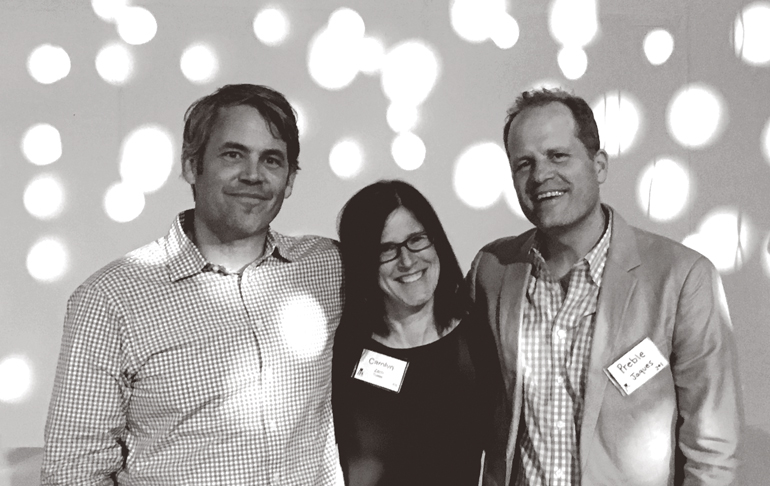
Andy Mims T'02, Carolyn Zern T'09, and Preble Jaques T'03 serve on the board of Boston nonprofit The Food Project together.
Last year, Carolyn Zern T’09 volunteered to pick weeds with a group of Tuck alumni at one of the nonprofit’s farms and was so impressed with the operation that she applied to join the board. Several years earlier, Preble Jaques T’03 found out about The Food Project through Jay Harrison, a friend, farmer, and now-executive director of the organization, then roped in his friend Andy Mims T’02.
“He was immediately my top draft pick because he knew a lot more about the issues we deal with,” says Jaques. Mims works in social and environmental investing at Loring, Wolcott & Coolidge and serves on two other boards: the Environmental League of Massachusetts and Manomet, a sustainability nonprofit.
“Preble’s been instrumental in me learning about it and joining,” says Mims. “What’s great is I can give him or Carolyn a call anytime and ask them all kinds of questions.” Jaques and Zern are on the development committee while Mims serves on the finance committee, but it’s not uncommon for the trio to collaborate.
Numerous other Tuckies have also contributed to The Food Project. Dave Adams T’08, president of AFC Urgent Care, sponsored a fundraising event in April; Jenn Blazejewski T’09 and Brinda Sen T’09 donated to The Food Project’s Ride for Food; and Jon Pearson T’09 rode 50 miles for The Food Project team and raised over $1,000.
“We’re incredibly lucky to have been able to go to a place like Tuck and learn, and I think we have a real obligation to give back where we can,” says Mims. “There are a lot of different ways you can give back, but being on a board and rolling up your sleeves can be a meaningful way to do it, and it feels good to be a part of it.”
At the welcoming ceremony as a first-year student, the primary speaker gave us words that have stuck with me for nearly 20 years. "You're more than welcome here,” he said. “You're one of us." They sound like small words, but they served as validation in the moment and a responsibility in my post-Tuck days.
When you’re a first-year student and you’re starting something new, you don’t know anybody. You don’t know if you’ll fit in or what your experience will be. Those words helped assure me instantly that I now belonged to something special. I was already part of the Tuck community and I deserved to be there. Since Tuck, I see it as my job to help any Tuckie any time they need it. It’s an obligation that I’m happy to fulfill.
For me, in 2008, when the financial world was collapsing, I was at Capital One and we were basically shutting down my business. I knew I was going to be unemployed in the worst economic time we’ve had, and I remember reaching out to people in the Tuck community. I thought I’d get maybe three out of ten people responding, but nine out of ten returned my call. People were genuine and helpful. A Tuck alumna, Annie Drapeau T’92, wound up telling me about Vistaprint, and that’s where I ended up.
I went to Tuck for a top-tier education—I wanted to accelerate my career—but what I value now is the true lifelong community. It’s so clear from the beginning that it’s not just about the two years you’re there; it’s about the 40 or 50 years that you’re going to be part of the Tuck community.
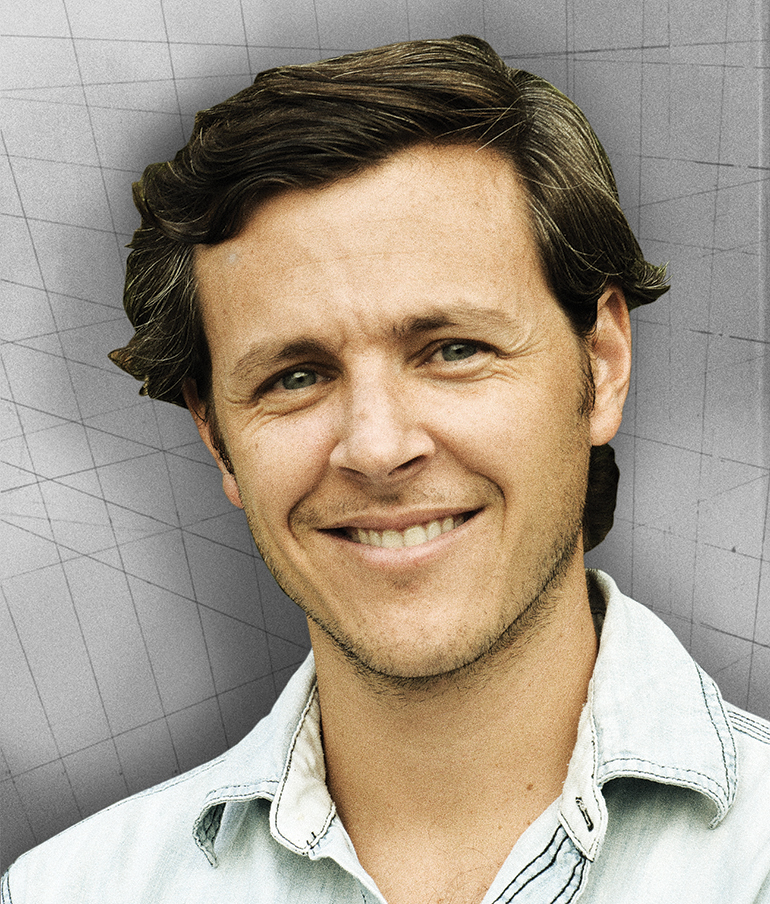
Roman Hughes T'12
As I was going through the process of selecting an MBA, I was in Latin America, in Uruguay, where I’m from. Conversations about culture in a business sense don’t happen very often there, if at all. Milton Hahn, who is a T’07, started working at the same private equity firm as me. He started talking about culture and how I should keep it in mind when choosing a business school.
When I got my acceptance letters, I really started to doubt which school was the right one for me. Milton suggested I go and visit Tuck in person, so I did. Right away, it became crystal clear that Tuck was an exceptional place and a phenomenal cultural fit. Tuckies are very capable people and are extremely hard working, but Tuck is also a friendly and relaxed atmosphere. It lends itself to having strong working business relationships but also friendships—people who really know who you are and your strengths.
Culture is still something I take very much to heart when selecting jobs. I associate culture with the current in a river. If you are somewhere where there’s a right fit, it feels like rowing with the current—everything around you helps achieve your goals. However, if it’s the wrong fit, it’s more like rowing against the current—you have to work a lot harder to achieve some progress. It’s easier, and way more pleasant, to row with the river than against it.
After Tuck, Milton said, “Hey, if you want to come back home, here are some people you might want to talk to and they’re really going to be the right cultural fit for you.” I met with one of his contacts over coffee. By the end of the conversation the guy said, “We’ve got an opening.” I didn’t even know it was a job interview! I’ve been working this new job for the last nine months now and it’s a great fit.
When Sue Ellis Allon was considering business school, Brad Creswell T’87, a friend and colleague, invited her to stay with him and his wife at Sachem Village. She expected a ho-hum experience of attending classes and strolling around campus. But the first night, her hosts threw a lively dinner party. Allon still remembers people filtering into the tiny apartment constantly, bringing steaming plates of food. They stayed up until the tiny hours of morning, laughing and talking. She already felt surrounded by friends.
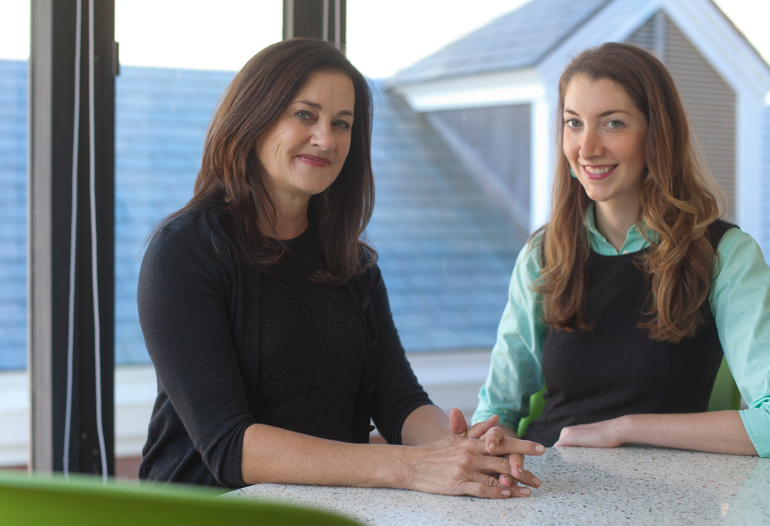
Tuck alumnae Sue Ellis Allon T'89 (left) and Erica Johnston T'15 (right).
“It was being welcomed into a home, and I do not mean just the Sachem Village apartment they lived in,” says Allon. “It was the larger home of Tuck. I couldn’t believe how wonderful it was.” Now, Allon has made a point of sharing the support and warmth of the Tuck network with a new generation of Tuckies.
“I’m an overseer at Tuck because I care so much and I want to give back and make sure more people in the world have the opportunities that I had or even better,” she says. “It’s a round-world thing.”
In 2014, for example, she contacted the Career Development Office to let them know that she, her husband, and her daughter had an extra room available in their Denver home for any Tuck student working in the city for the summer. Meanwhile, Erica Johnston T’15 was wondering how she would find and afford housing for her internship at Denver-based WhiteWave Foods that summer.
“I got a call from Sue out of the blue,” says Johnston. “She didn’t know anything about me other than I was a Tuck student, yet she offered to let me live with her. I thought it was too good to be true. I thought there had to be a catch, but that was just Sue giving back to the Tuck community.” Johnston lived with the Allon family for 10 weeks. Allon arranged lunch with the CEO, a Dartmouth alum, and offered career advice and support, while Johnston helped Allon in the garden and housesat when the family traveled. Johnston now lives in Minneapolis and works for General Mills. She keeps in touch with Allon and, in turn, is inspired to give back to the Tuck community herself.
She is part of a weekly dinner-party group in Minneapolis with eight other T’15s that has been going strong for a year and a half. She is a mentor through Tuck Connections which helps connect prospective students with members of the Tuck community who have similar backgrounds. She’s also a Tuck marketing mentor and acts as an adviser to a current student interested in marketing and has sponsored Tuck summer interns at General Mills.
“The Tuck network has been very supportive professionally but also personally,” says Johnston. “I try to pay it forward as much as I can.”
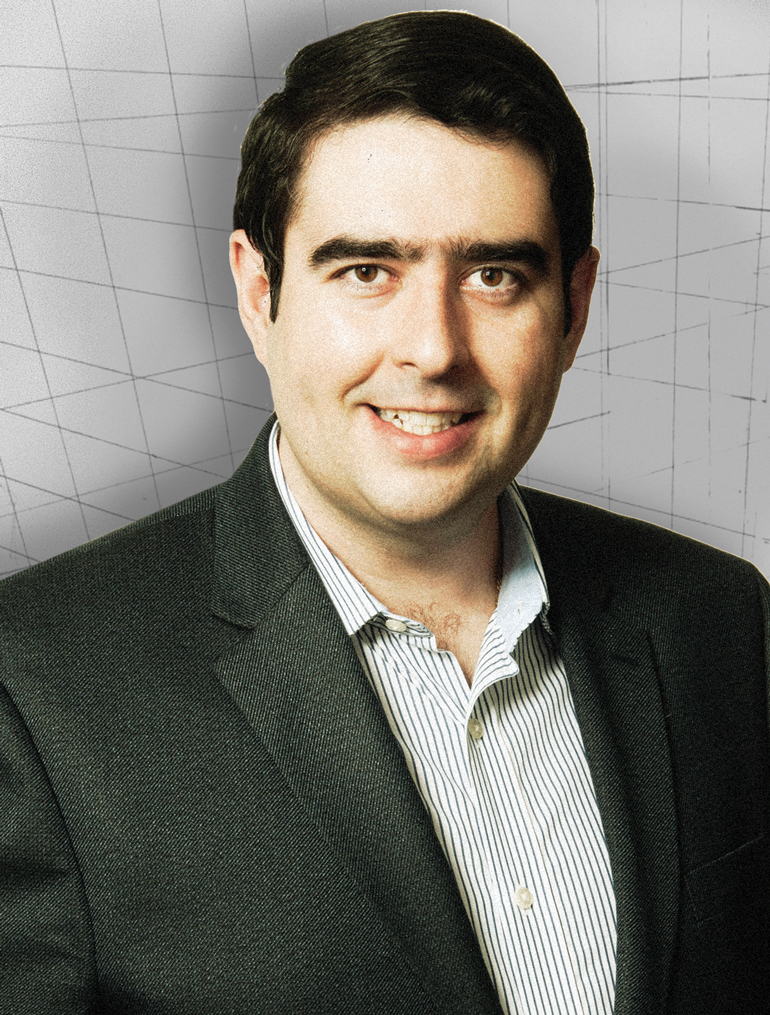
Francisco Ortego T'15
When I was a prospective student, I asked a current student, a T’14, about tips for my admissions interview the next day. He said, “Make sure you highlight how you have helped your colleagues and direct reports become better at what they do, because that’s really what leadership is all about.”
In a way, that’s something I already understood and did at my job, I just hadn’t articulated it clearly. Putting that notion of what leadership is in a simple phrase really struck a chord in me. It was a big aha moment. In the admissions interview, I made sure to explicitly call out how I had helped my employees succeed and how that shaped my leadership view.
I have also really taken that advice to heart in my professional life. I’m a consultant right now. I’ve been in the job for about a year and a half. I get to interact with other junior consultants who are either straight out of college or just starting out after their MBA. I put a lot of weight into helping them navigate the first couple of months of the job, which can be pretty tough. But I’ve learned that if they succeed, then we will all succeed. This has been reflected in the work that I’ve done, which is consistently on time and delivered with the high quality that’s expected.
I told the alum that his advice was probably some of the best I ever received—not only to get into Tuck but altogether. His advice helped me understand more deeply what being a leader means and interiorized the notion that altruism is the noblest form of egoism.
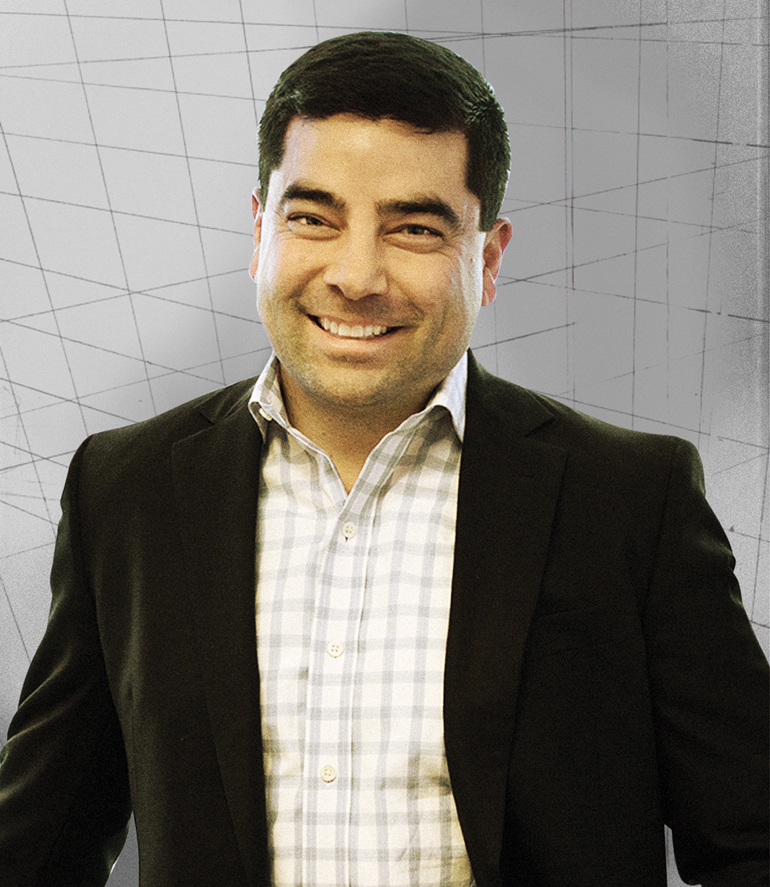
Doug Asano T'04
In my second year at Tuck, we lost my mom to cancer at Christmas, then my first daughter was born nine weeks prematurely that spring. It was not the way I envisioned finishing the year. But I was really close to Assistant Dean Sally Jaeger and also to current Dean and then Professor Matthew Slaughter, who both told me, look, take care of your family first, don’t worry about the rest of it. You taking care of your wife and daughter is much more important than one problem set or any single academic commitment.
It was so helpful to know that two of the more senior people at Tuck were not just advocating for me but working to make sure they could do whatever they could to help. The whole Tuck community was amazing. I would come home and my wife would have spent the whole day at the hospital. Friends of ours would have just shown up and taken the dog for a walk and made us dinner and cleaned the house. I still look back at that as the ultimate reflection or true test of the Tuck community.
I still try to remember Matt and Sally’s advice today in my career. It’s one of the pieces of advice I try to give others too—and I’ve got about 100 people who work for me. Your career can consume you. You can always spend an extra hour at work. You can respond to email and text messages 24 hours a day, seven days a week. When my employees go on vacation, I tell them, I don’t want to see any emails or text messages from you. It’s not that Sally and Matt were saying to blow things off; they meant, take care of your family first and everything else will take care of itself.
At Reunion 2017, alumni shared what it's like to be a part of one of the most powerful and supportive alumni networks in the world.
This article originally appeared in print in the summer 2017 issue of Tuck Today magazine.